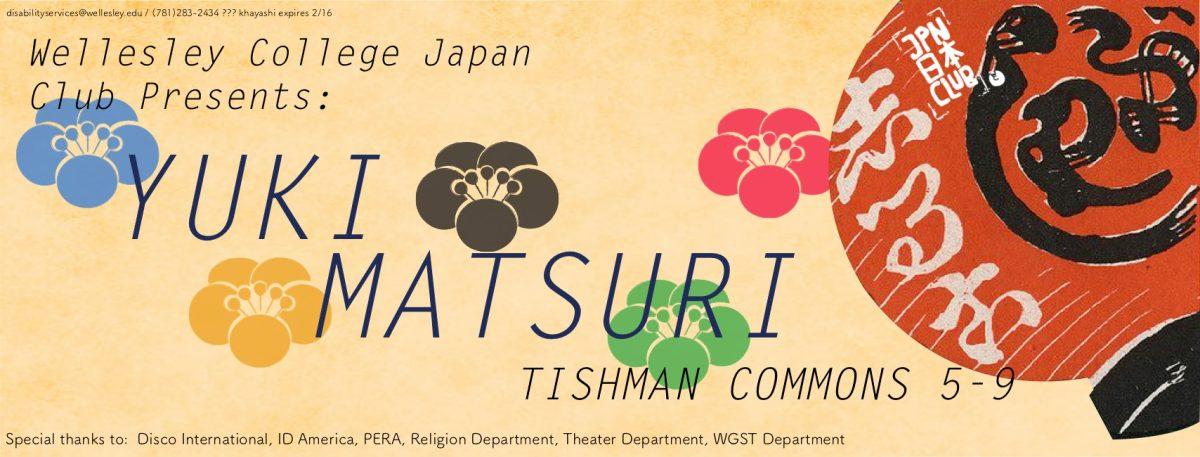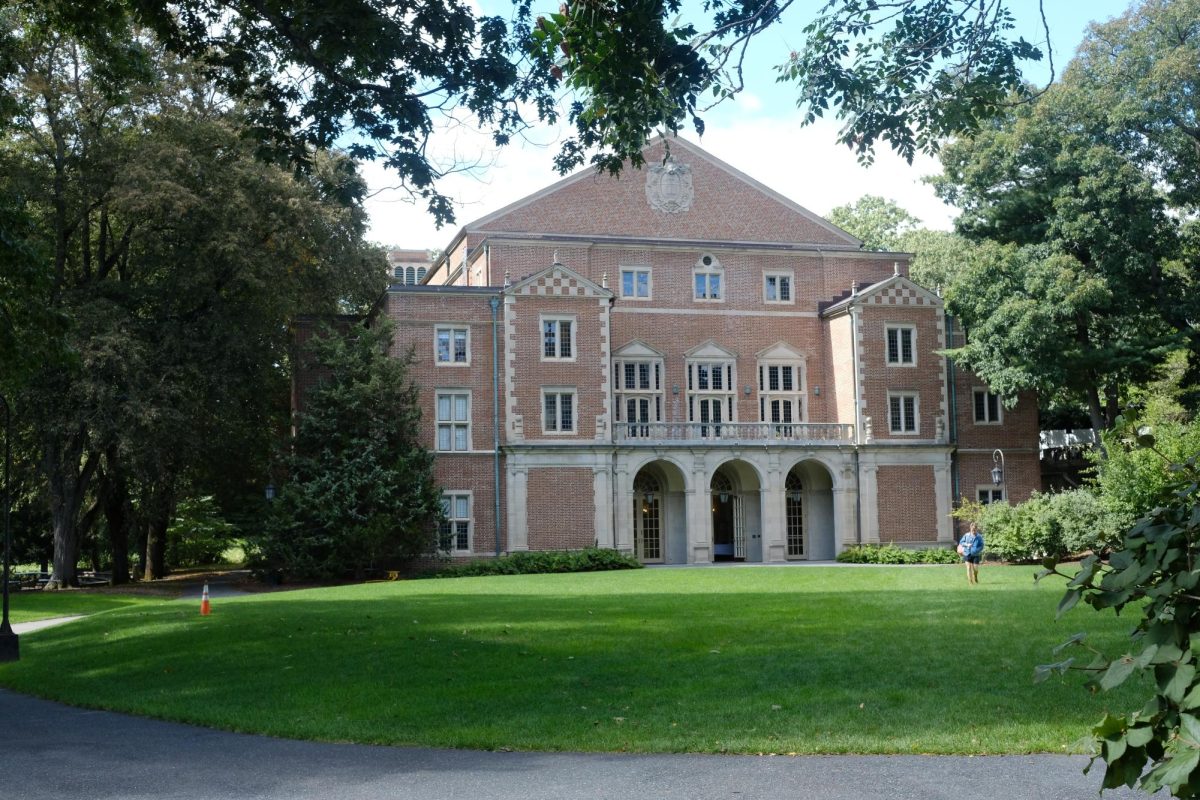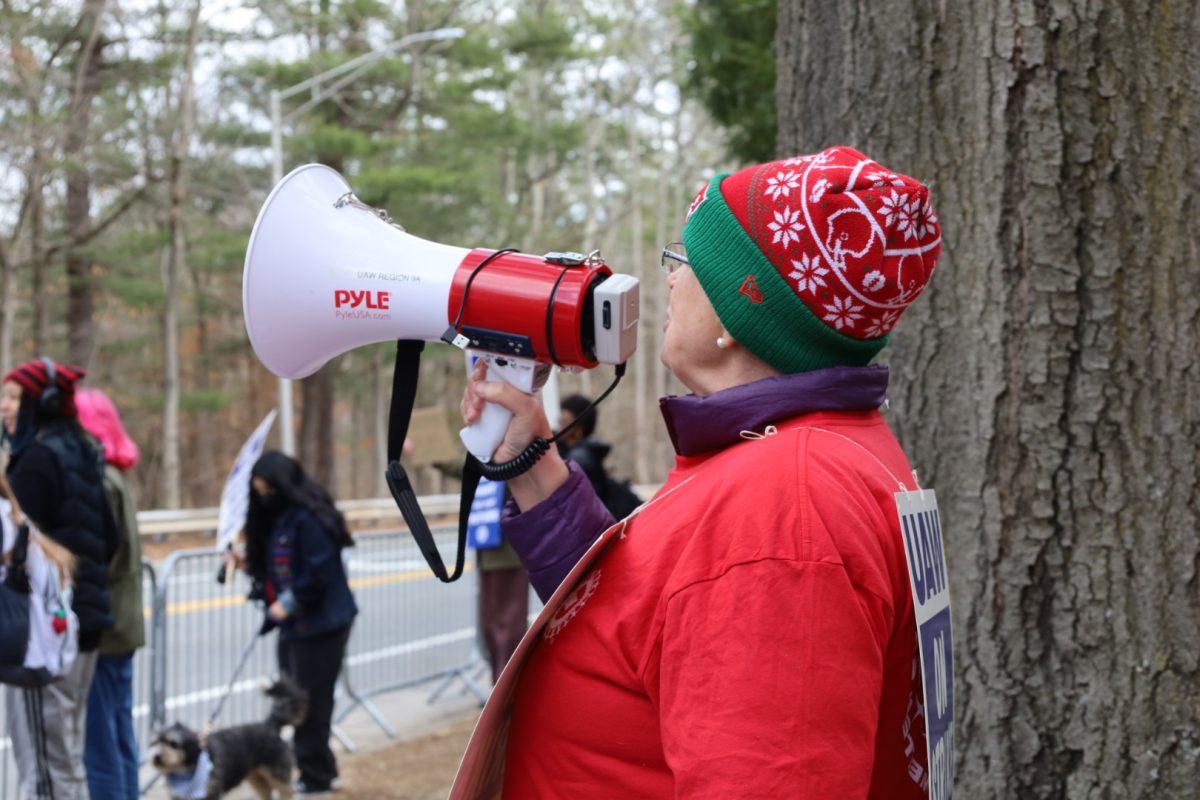After nearly a year of planning, Japan Club held its annual Yuki Matsuri festival on Feb. 15, bringing together students of all backgrounds and grade levels to celebrate the club’s biggest event. Yuki Matsuri, which translates to “snow festival,” commemorates the club’s 16th year and was modeled after traditional Japanese matsuris. Activities featured included interactive booths, traditional food and cultural performances. Wellesley’s Department of Eastern Language and Culture helped with the planning of the event.
According to Elisabeth Clemmons, the culture chair of the club, the purpose of the event was for students “to experience an authentic Japanese matsuri and become immersed in the culture in an accessible way.”
“Yuki Matsuri is a way for me to appreciate and enjoy my own culture as well as for the Wellesley community to experience the Japanese culture that I am so proud of,” Risako Gen ’22, the publicity chair of the club.
One of the main attractions of the festival was the Japanese food featured at the event, Clemmons said, which included dorayaki, a red bean-stuffed pancake; kakigoori, shaved ice with red bean, mochi and other toppings; and onigiri, triangular rice balls with fillings like salmon or preserved vegetables. Additionally, the club planned several booths that had traditional matsuri games for students to engage in such as a ring toss; Superball Sukui, where participants use paper scoops to catch a variety of objects from water; Senbonbiki, where participants pulled strings in hopes to win prizes or fortunes; and a Mask Wall, where attendees could temporarily check out masks to wear throughout the event.
The festival also featured several traditional dances, drumming performances, a fashion show and a demonstration of a kyudo, or Japanese archery. While several of these events featured collaborations with Olin College, Middlebury College and Brown University, the majority were executed using on campus resources. According to Clemmons, one of the most beloved performances was a dance called bon odori, in which the crowd was invited to join in and dance around a “bonfire.”
The club reported that there were 553 students in attendance, signifying a slight drop from last year. According to Clemmons, this is likely due to the new email policy instituted this year which no longer allows orgs on campus to reach out to the entire student body via email.
“The inability to reach out to the entire campus has unfortunate impacts, like this inability to reach out to students who are unfamiliar with Japanese culture. We can only reach out to those who are already interested in Japanese culture,” Clemmons said. “We hope that we can figure out a system to better publicize the event and reach more potential guests who might want to learn about Japan.”
Since this year’s festival coincided with the Tokyo 2020 Summer Olympics, one of the club’s main goals was to emphasize the “intercultural collaboration and a cooperative international spirit” of the Tokyo Olympic Committee. The organization was given permission to use Olympic materials from the US Olympic Committee.
“For me, as a travel enthusiast, Yuki Matsuri is a way of discovering the world without having to leave campus. It’s accessible, informative and inclusive as well as incredibly fun,” Clemmons said. “This year, we really tried to put forth that collaborative spirit for not just the Olympics but to uphold the values the very first Yuki Matsuri was founded upon.”






